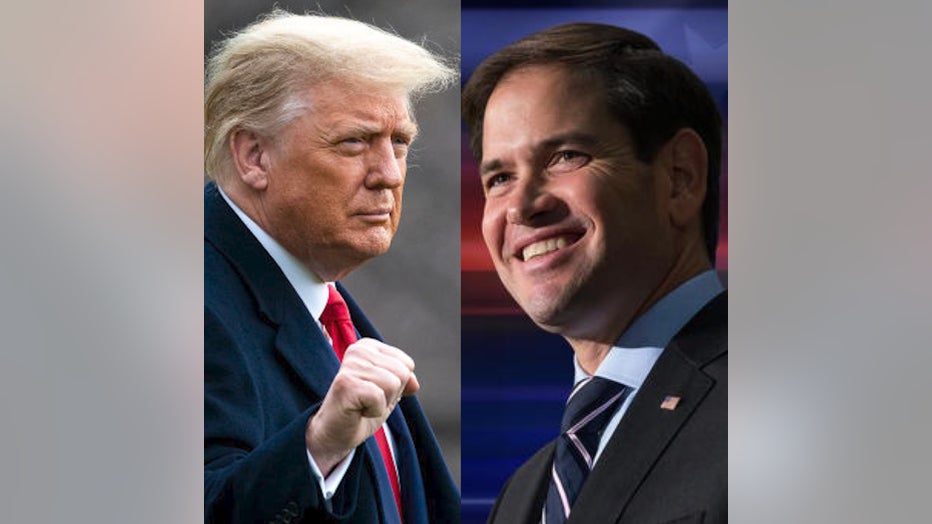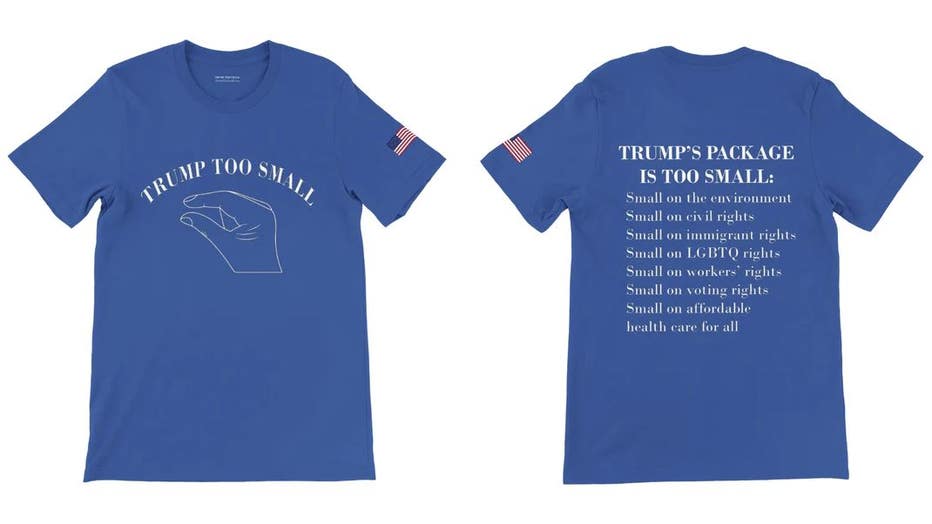Bay Area lawyer's trademark dispute over 'Trump too small' slogan to be heard by Supreme Court
Concord lawyer Steve Elster created T-shirts with the slogan "Trump too small." The Supreme Court on Monday, June 5, 2023, agreed to take up his trademark fight over the phrase. (Steve Elster / www.trumptoosmall.com/)
WASHINGTON - The Supreme Court on Monday agreed to take up a Bay Area lawyer’s fight to trademark the phrase "Trump too small" in a case that pits the First Amendment against federal trademark law.
Concord attorney Steve Elster filed to register the phrase with the United States Patent and Trademark Office (USPTO) back in January 2018.
SEE ALSO: E. Jean Carroll adds Trump's post-verdict remarks to defamation case, seeks at least $10M
The phrase made reference to a memorable back and forth between Trump and then GOP presidential rival Florida senator Marco Rubio during the 2016 presidential campaign.

The trademark request for the phrase "Trump too small" stemmed from the verbal exchange between Donald Trump and Florida senator and GOP presidential rival Marco Rubio during the 2016 presidential campaign.
During a rally, Rubio told the crowd that Trump was always calling him "little Marco," and shot back at the criticism by making fun of Trump, saying he was the one with disproportionately small hands. "Have you seen his hands? ... And you know what they say about men with small hands," Rubio said. "You can’t trust them."
Trump later responded to the comment during a televised debate on March 3, 2016.
"Look at those hands. Are they small hands? And he referred to my hands — if they’re small, something else must be small. I guarantee you there’s no problem. I guarantee you," he said.
Elster registered to trademark the slogan "Trump too small" to print them on "Wearable garments and clothing, namely, shirts," according to the USPTO filing.

Concord lawyer Steve Elster created T-shirts with the slogan "Trump too small." The Supreme Court on Monday, June 5, 2023, agreed to take up his trademark fight over the phrase.
But the agency rejected the filing.
According to federal law, a trademark request should be refused if it "consists of or comprises a name, portrait or signature identifying a particular living individual" unless the person has given "written consent."
Government officials said the phrase "Trump too small" could still be used, just not trademarked because Trump had not consented its use.
Elster has argued that refusing to register a political slogan criticizing Trump without Trump’s consent violates the First Amendment’s Free Speech clause.
He took his case to a federal appeals court, which sided with the Bay Area attorney.
In an unusual twist in this case, the Justice Department stepped in to defend the USPTO's rejection of Elster's trademark request, placing the Biden administration on the side of Joe Biden's once and possibly future rival.
In January, the Justice Department asked the Supreme Court to review the Federal Circuit’s decision.
"The Federal Circuit’s opinion was correct but since the Trademark Office’s cert petition was granted, I’m hopeful that the Supreme Court will reach the same conclusion," Elster told KTVU.
The Supreme Court was expected to hear arguments in the case in the fall.
In a statement, Elster’s attorney, Jonathan Taylor, said, "We look forward to defending the right to convey core political messages on trademarks. The government’s attempt to burden political speech—by granting public figures a monopoly over speech about them in the marketplace—is indefensible."
The Associated Press contributed to this story, which was reported in Oakland, Calif.

